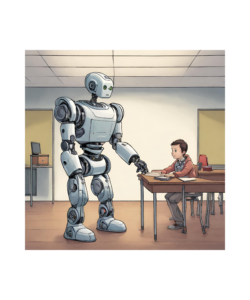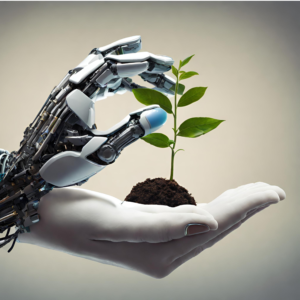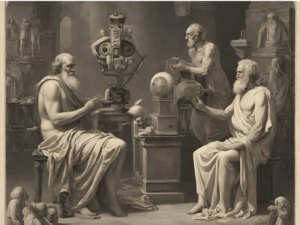Artificial Intelligence (AI) has seamlessly woven itself into the fabric of our daily lives, often operating in the background, influencing decisions, and shaping our experiences. In this blog, we’ll embark on a journey to uncover the hidden influences of AI, exploring its role in various aspects of our everyday existence.
Imagine scrolling through your social media feed, and suddenly, you come across personalized recommendations that align perfectly with your interests. Whether it’s suggesting the next binge-worthy series on your favorite streaming platform or introducing you to a new book based on your reading history, these personalized recommendations are the result of sophisticated AI algorithms working diligently behind the scenes.
Online shopping takes on a new level of convenience with AI-powered recommendations. As you browse through e-commerce platforms, AI analyzes your purchase history, search history, and preferences to suggest products that resonate with your taste. It’s like having a virtual shopping assistant that understands your style and preferences, making the online shopping experience more personalized and enjoyable.
AI’s influence extends beyond entertainment and shopping—it plays a crucial role in healthcare, contributing to early diagnosis and personalized treatment plans. Medical professionals leverage AI algorithms to analyze vast datasets, identify patterns, and predict potential health risks. From detecting anomalies in medical imaging to tailoring treatment options based on genetic profiles, AI is revolutionizing the way we approach healthcare.
When you interact with customer support chatbots, you’re engaging with AI-driven technology designed to provide efficient and immediate assistance. These chatbots are programmed to understand and respond to user queries, offering solutions and information without the need for human intervention. This not only streamlines customer support processes but also ensures quick and consistent responses.
AI’s impact on transportation is evident in the rise of autonomous vehicles, which are vehicles that can operate without human input. According to Wikipedia, self-driving cars are a subset of autonomous vehicles that use AI technologies to perceive their environment and control their motion. Companies like Tesla have integrated AI technologies into their vehicles, enabling features such as autopilot mode. These systems use sensors, cameras, and advanced algorithms to navigate and make real-time decisions, enhancing both the safety and efficiency of transportation.
In the realm of education, AI is transforming learning experiences. Educational platforms use AI to adapt to individual learning styles, providing customized lessons and assessments. Whether it’s language learning apps adjusting difficulty levels based on your proficiency, or adaptive learning platforms tailoring content to suit your pace, AI is reshaping the way we acquire knowledge.
Nevertheless, as we marvel at these AI-driven conveniences, it’s essential to consider the ethical implications surrounding the collection and utilization of personal data. The very algorithms that make our experiences seamless also raise concerns about privacy and the potential for algorithmic bias. Striking a balance between innovation and ethical considerations will be crucial as we continue to integrate AI into our daily lives.
In conclusion, AI’s hidden influences are pervasive, touching every aspect of our daily routines. From personalized recommendations to healthcare advancements and autonomous vehicles, AI is a silent force shaping the world around us. As we navigate this AI-infused landscape, it’s essential to remain vigilant about the ethical dimensions of its use, ensuring that the benefits it brings are accompanied by responsible and transparent practices.




